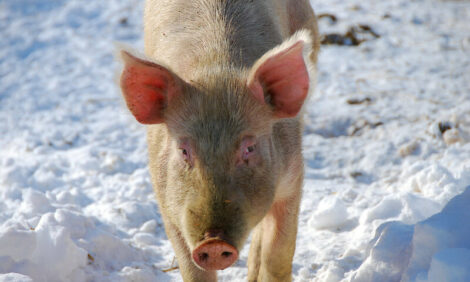



New Technology Key to Increasing Food Production
CANADA - The Global President of Elanco Animal Health suggests freeing up access to new technology will be key to enabling farmers to meet the growing global demand for food, Bruce Cochrane writes."Making Safe, Affordable and Abundant Food a Global Reality" was among the topics discussed yesterday as part of the opening session of the 2012 Banff Pork Seminar.
Jeff Simmons, the Global President of Elanco Animal Health, notes the seven billionth baby was born on 31 October of last year and we're seeing the equivalent of Chicago and Las Angeles added to the global population every month yet, at the same time, 25 thousand people are dying every day because they can't get enough to eat.
Jeff Simmons-Elanco Animal Health
Making food more available, more abundant, more affordable is critical and it's real across the world but there's progress.
We're seeing Progress.
If you look back at 1962 to now we have double food in North America.
Canadians and Americans, the farmers, the production system, pretty impressive, they've doubled the output.
This is even more profound, on the same input.
We've used the same amount, no more.
There's no industry that can say that, that since 1962 they've doubled and used no more.
So going forward we need to do it again but we have more environmental constraints, more policies that are restricting how we handle our animals, more challenges from a public affairs and a food chain perspective, more trade dynamics.
You put all that into play and it's going to be harder.
We can do it but it's going to take a lot more leadership, a lot more influence, a lot more knowledge of what's going on globally.
Even if you're in a farm in western Canada out here you need to be aware of how we fit into this global picture.
Mr Simmons suggests access to new technology holds the key to enabling farmers to meet the increased demand for food while reducing their environmental impact.
He notes statistics indicate new technology will contribute 70 to 80 of the doubling in food production that will be required over the next 50 years.








